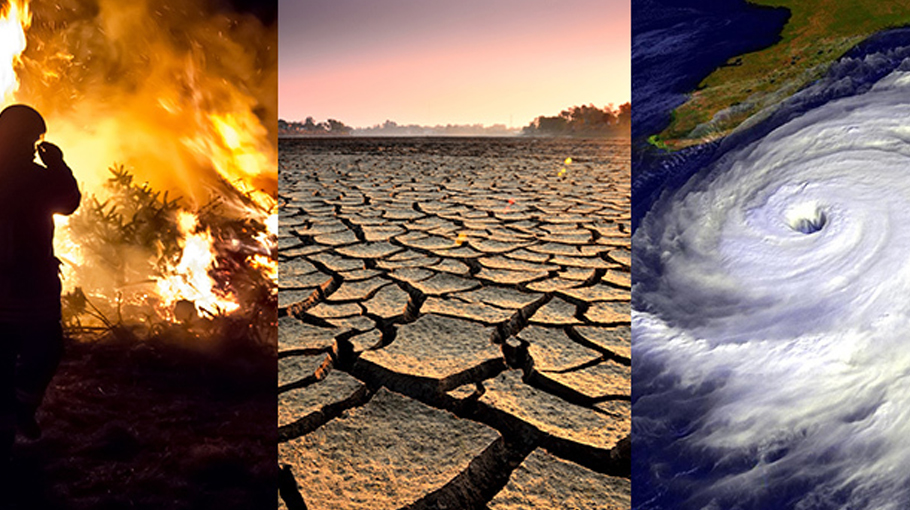Startling statistics on climate migration
It is time to increase the investment in policies and programmes to protect people from environmental risks induced by climate

A recent World Bank report projects that climate change could push more than 200 million people to leave their homes in the next three decades and create migration hotspots unless urgent action is taken to reduce global emissions and bridge the development gap. Climate change affects the whole world but because of the geographic location, Bangladesh has long been in the eye of the storm. Bangladesh is one of the most vulnerable countries to climate change in the world. Here the curse of climate change hits in the forms of rising sea level, natural disasters, economic breakdown, prolonged monsoon, frequent changes in weather pattern and temperature and so on. Reportedly, salinity, rising sea levels and other adverse climate impacts could cause as many as 13.3 million people to leave their homes in the coastal areas of Bangladesh by 2050.
There is strong evidence that deteriorating environments caused by climate change are driving millions of people to resort to mass migration in their search for a better life, both within countries and across borders. Human settlements have been affected in Bangladesh due to extreme climate events over past years. One of the most adverse and prolonged impact of climate change in Bangladesh has been observed in the form of climate migration. It is apprehended that by 2050, one in every seven people in Bangladesh will be displaced by climate change. Hence, we should realise the need for formulating coherent and research-backed policy, legal and institutional framework to address climate migration. We need to devise immediate measurers to protect people from environmental risks and stop unwanted migration due to climate change.
Reportedly, Bangladesh’s average annual temperature is predicted to increase by 1.0°C to 2.5°C. Experts opine that such a rise in temperature will not only cost Bangladesh 6.7 percent of Gross Domestic Product and lower the living standards of more than one-third of its population by 2050 but also it will also have a massive impact on environment, livelihood, irrigation, ecology and biodiversity.
Climate change affects the whole world but because of
the geographic location, Bangladesh has long been
in the eye of the storm
Bangladesh is recognised internationally for its cutting-edge achievements in addressing climate change. The country has been spending $2 billion a year since 2010 due to address climate change. However, despite the considerable progress that Bangladesh has made over the last decade, the country faces continuous challenges associated with climate change. Bangladesh has done almost nothing to cause global warming unlike first world countries that bear a great deal of responsibility for carbon emission already in the atmosphere. Nevertheless, the country has to pay a much steeper price because of its geographical location.
The world is now going through a situation where the most vulnerable countries, which deserve the highest level of priority, are failing to access support that is being realised. Major emitters show extreme reluctance on mitigation, which may wreck the international climate regime and put the climate vulnerable countries like Bangladesh at peril. As developed countries are accountable for the severe consequences of climate change, they must provide with necessary financial, technological and intellectual support to the developing countries following the Paris Agreement to tackle climate change. Moreover, developing countries like Bangladesh need a global commitment to face climate challenges.
It needs no emphasising that without incorporating Paris Agreement, it will not be possible to restrict rise in world temperature. Speaking at the launch of a U.N.-backed report summarising current efforts to tackle climate change, the head of the United Nations, António Guterres, on Thursday, rightly said that unless there are immediate, rapid and large-scale reductions in greenhouse gas emissions, we will be unable to limit global heating to 1.5 degrees Celsius and the consequences will be catastrophic. However, it is envisaged that Bangladesh’s growth rate may lose its momentum in the coming days due to climate change consequences. This will hinder the country’s development gains unless proper mitigation and effective prevention measures are undertaken immediately.
Hence, it is time to increase the investment in policies and programmes to protect people from environmental risks induced by climate change. There is a need to prioritise the districts vulnerable to climate change and establish a district-level funding mechanism focusing on capacity building of women, young people and children.
At the same time, green jobs at the rural and semi-urban areas should be promoted, which will not only contribute to decreasing vulnerability posed by climate change but also accelerate our national economic growth.
Sayeed Hossain Shuvro is working as Editorial Assistant
at Bangladesh Post.



